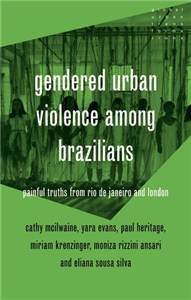Resisting Olympic evictions
Contesting space in Rio de Janeiro
by Adam Talbot
By tracing the way evictions in a small community of around 600 families made news headlines all over the world, this book explores how activists in Rio protested against evictions at the Rio 2016 Olympics. They constructed the favela as safe, welcoming and homely, directly contesting the myth of marginality - the notion of favelas as havens of crime and poverty which is used to justify slum clearance. In doing so they were showcasing how a different kind of informal community rooted in security and belonging is possible, through a range of social events and other actions. Based on 14 months of fieldwork in Brazil, this book explores how this vision was constructed through collective action, transmitted around the world through both social and traditional media and how it lives on in the Evictions Museum that was created through the process.


































